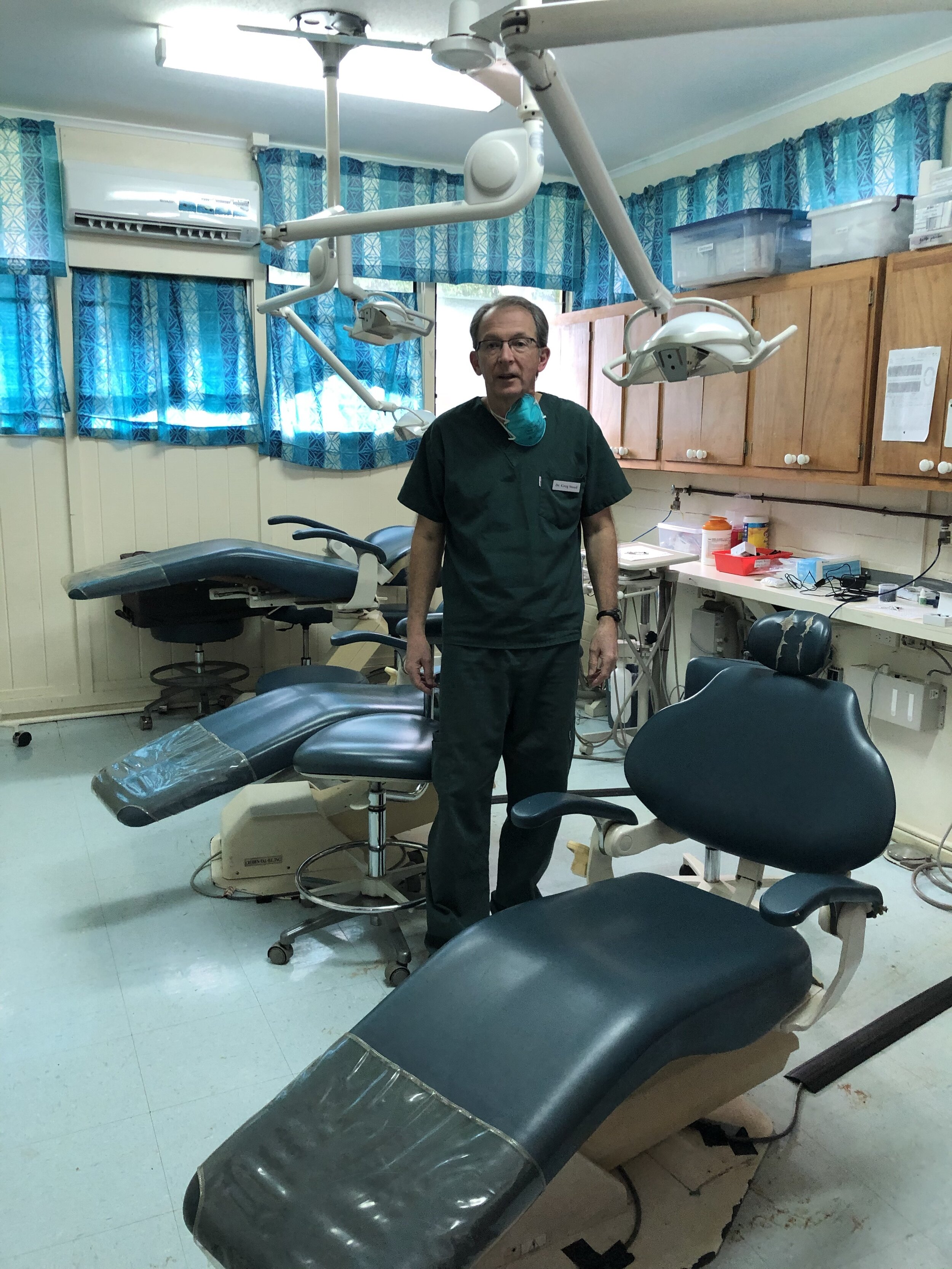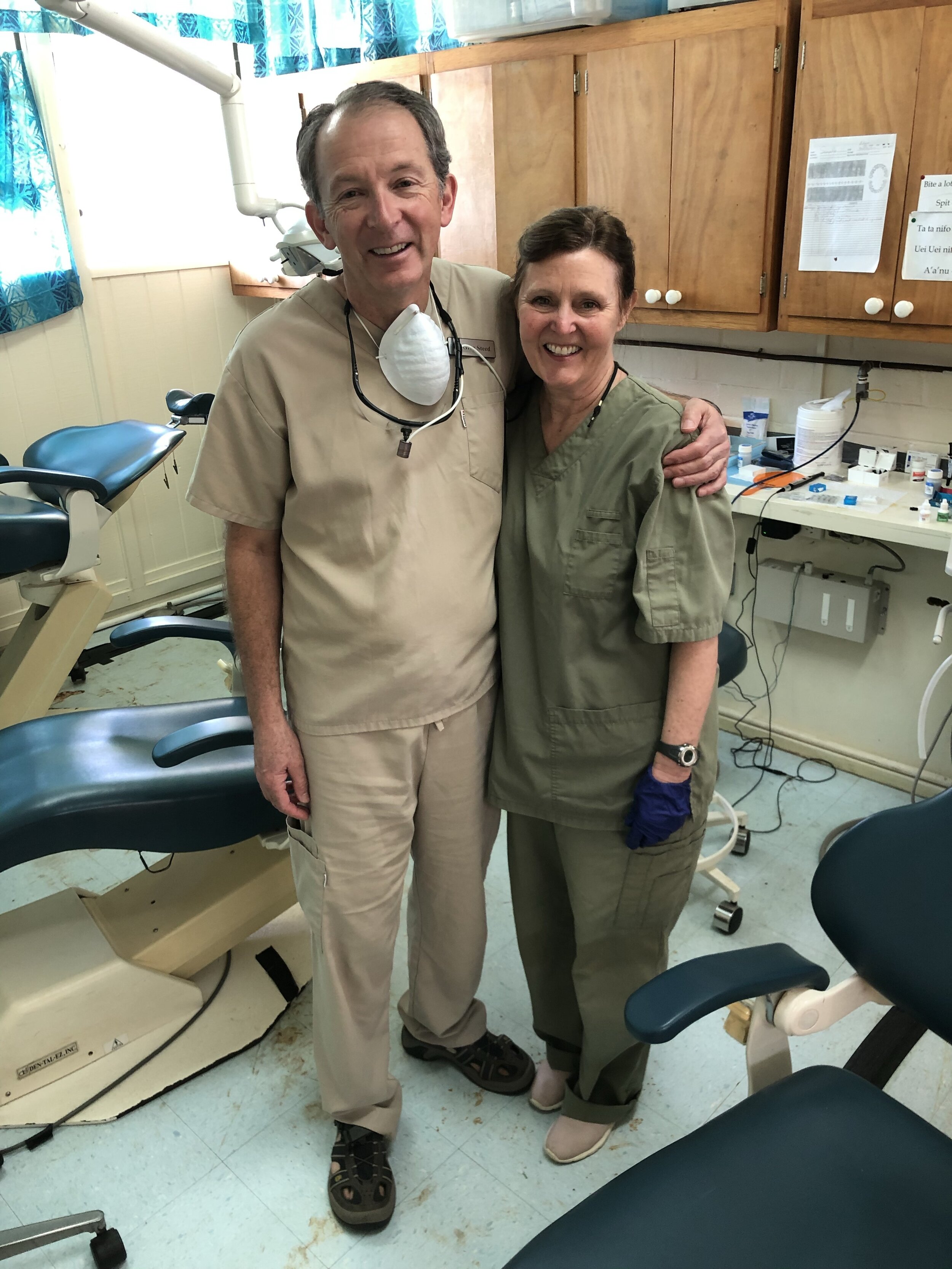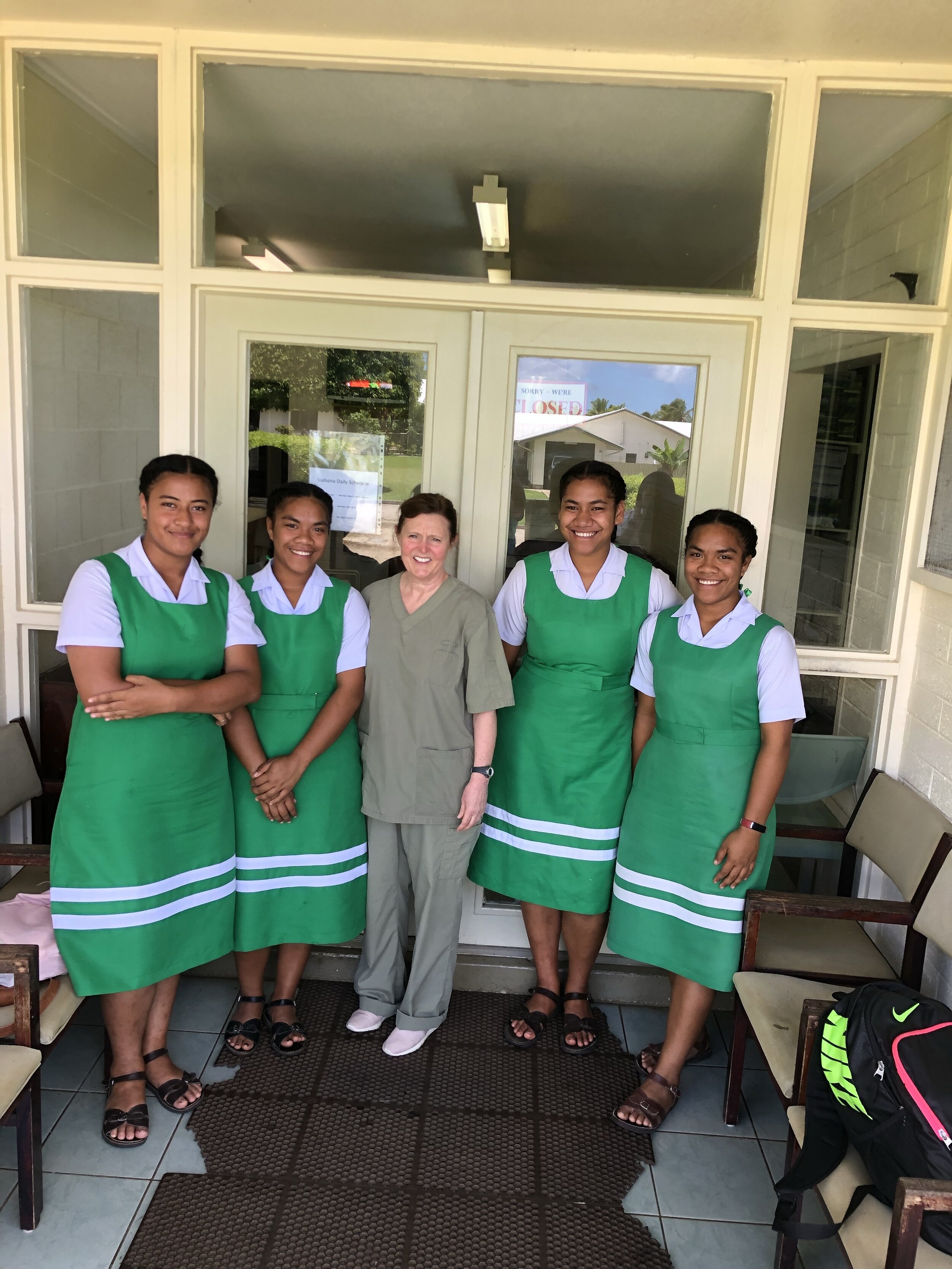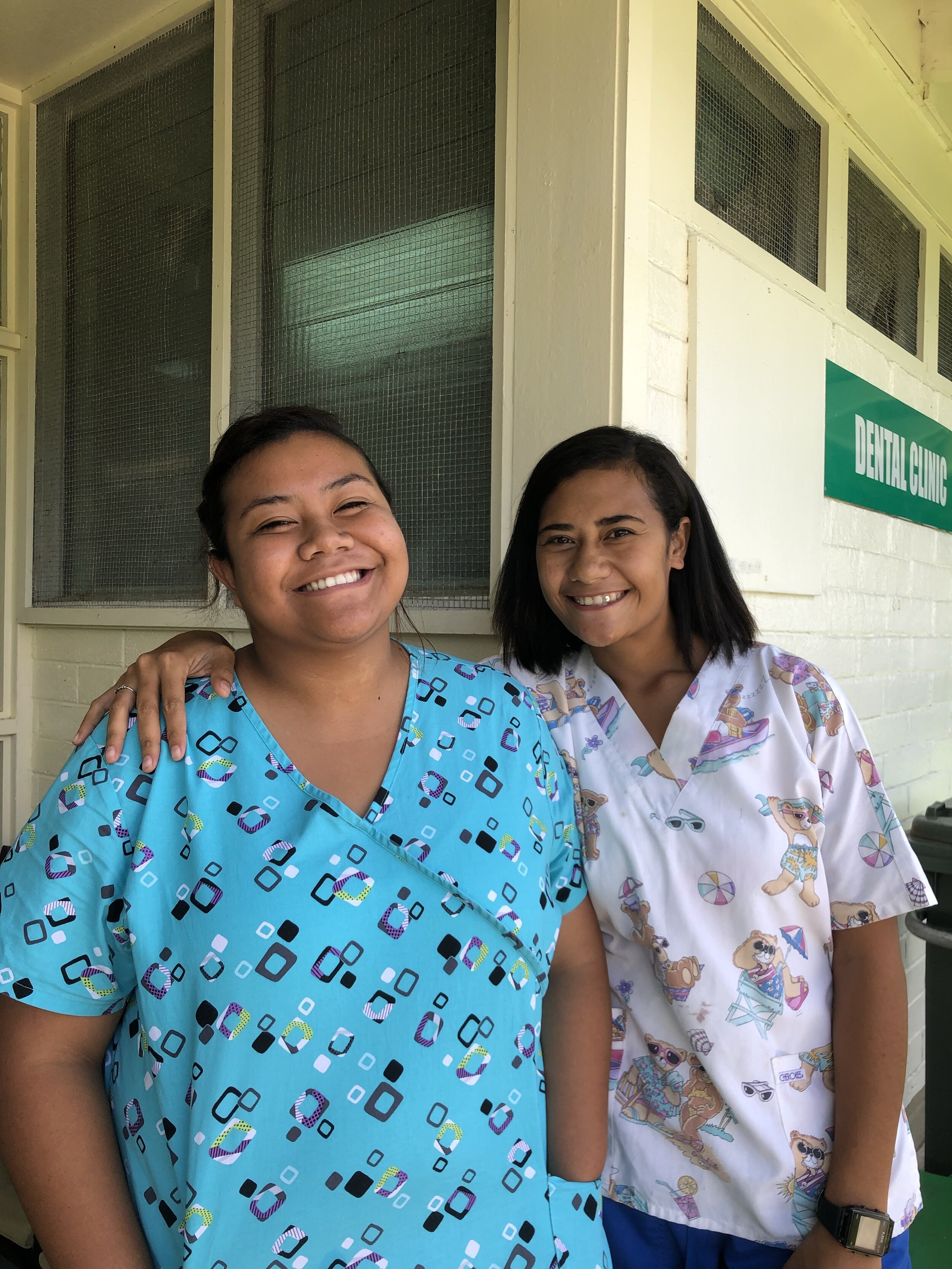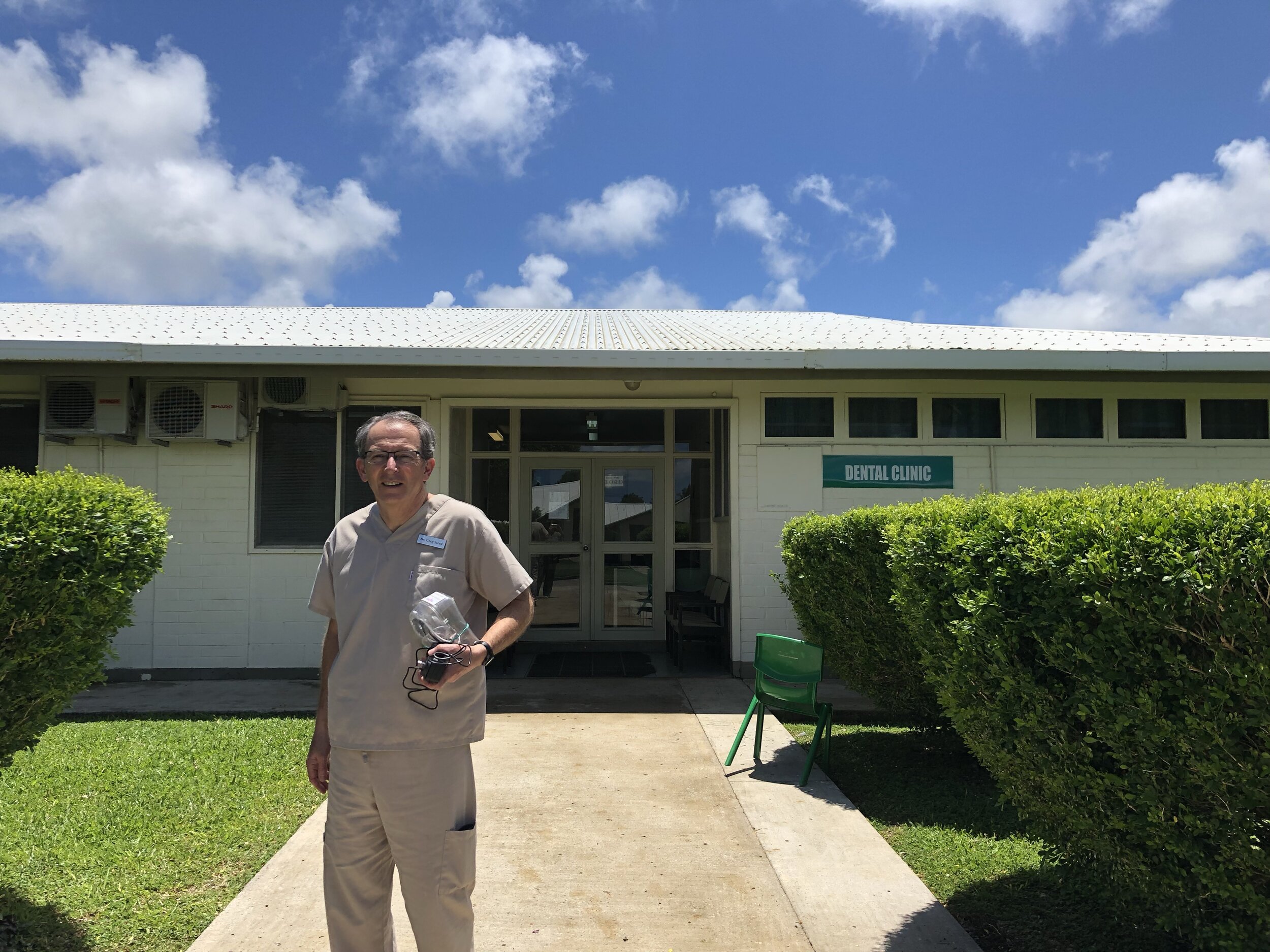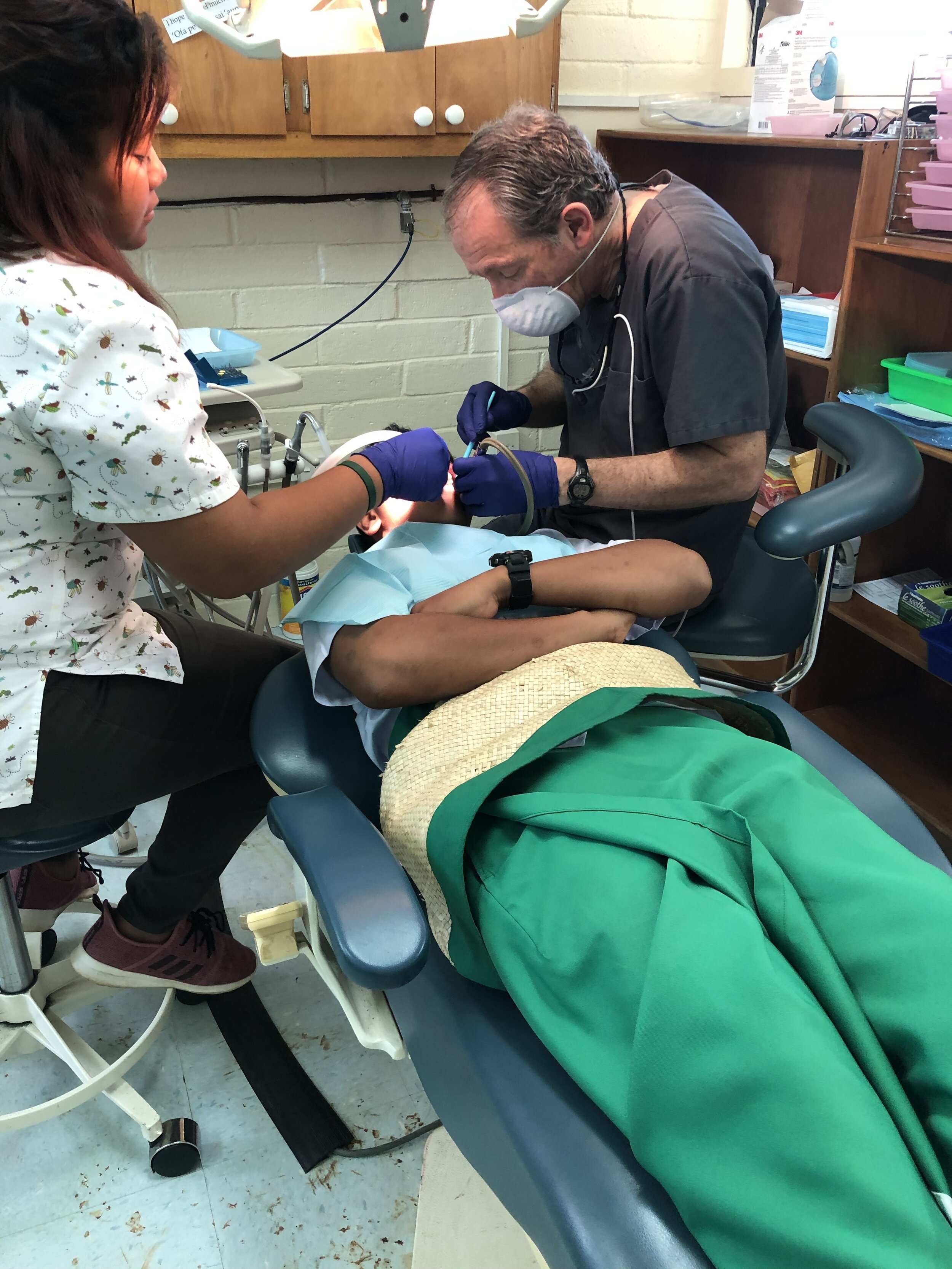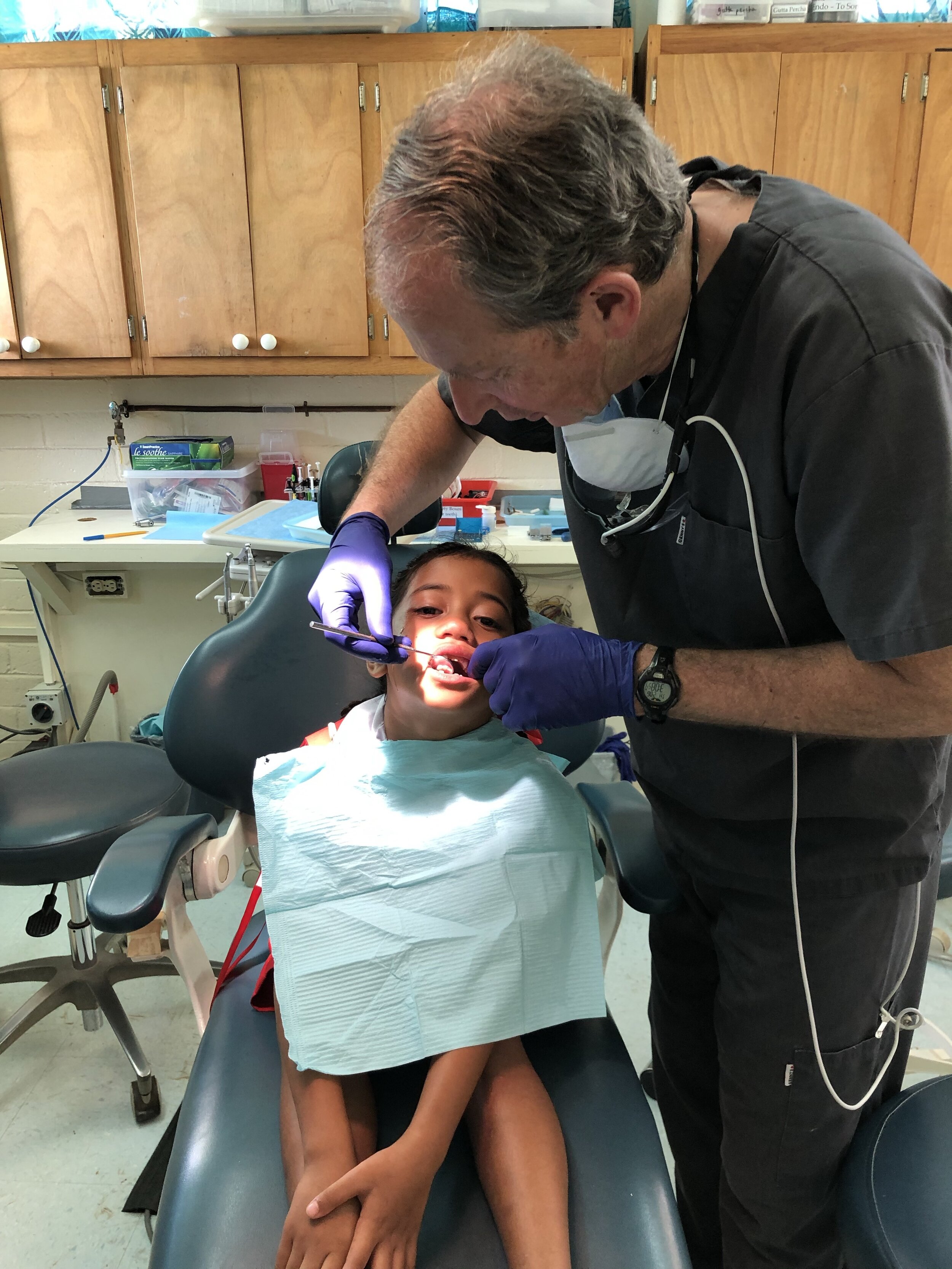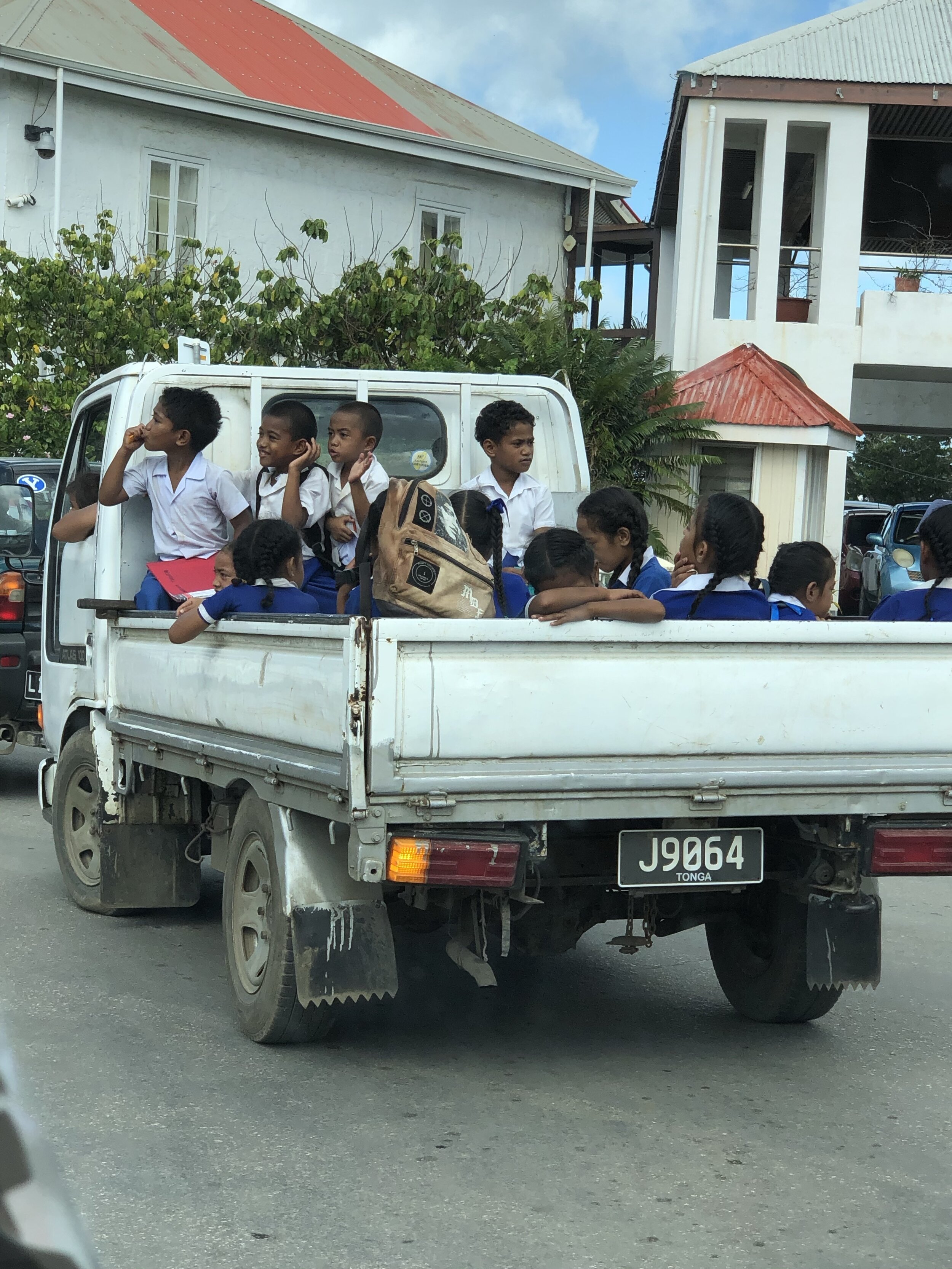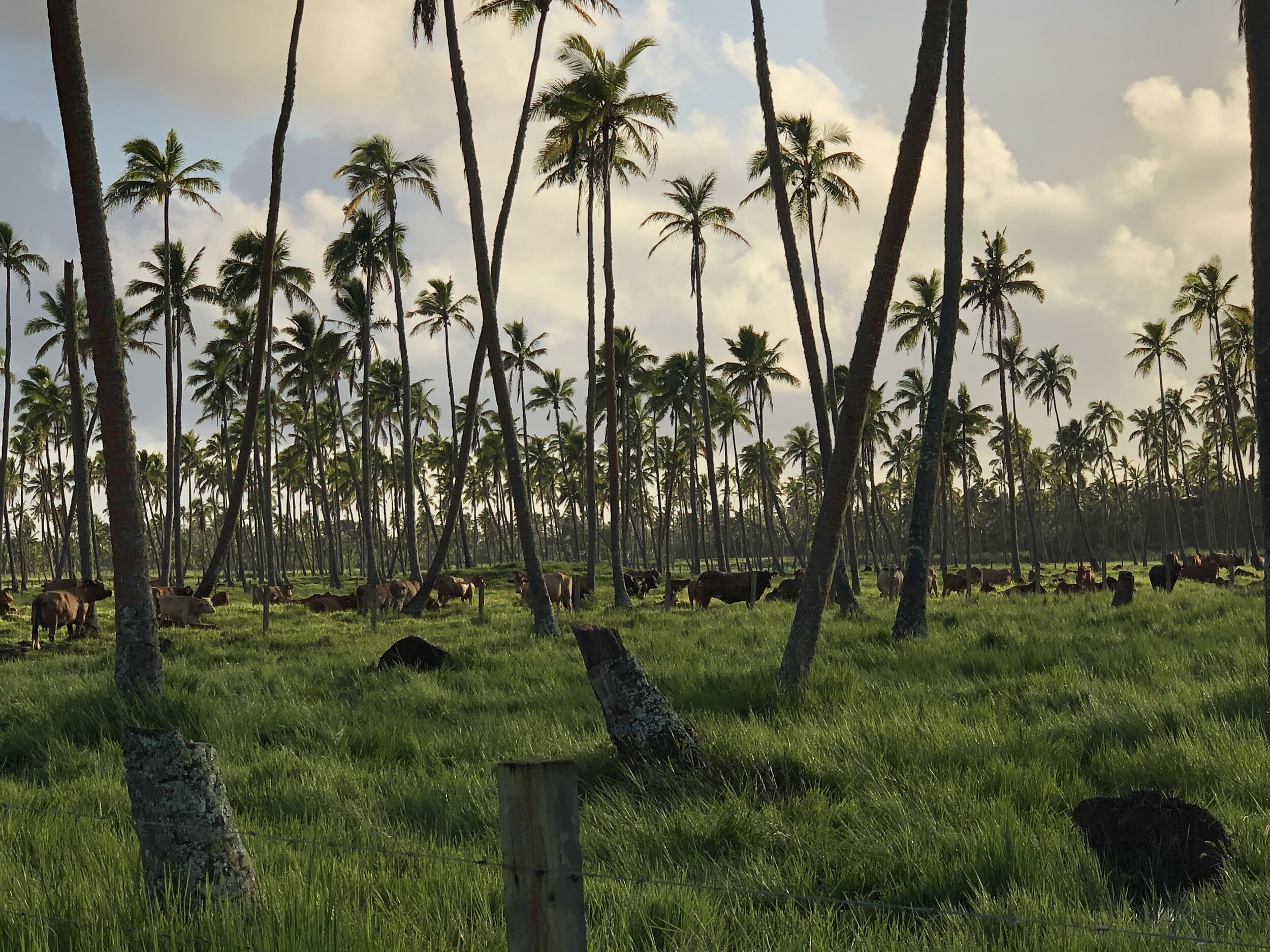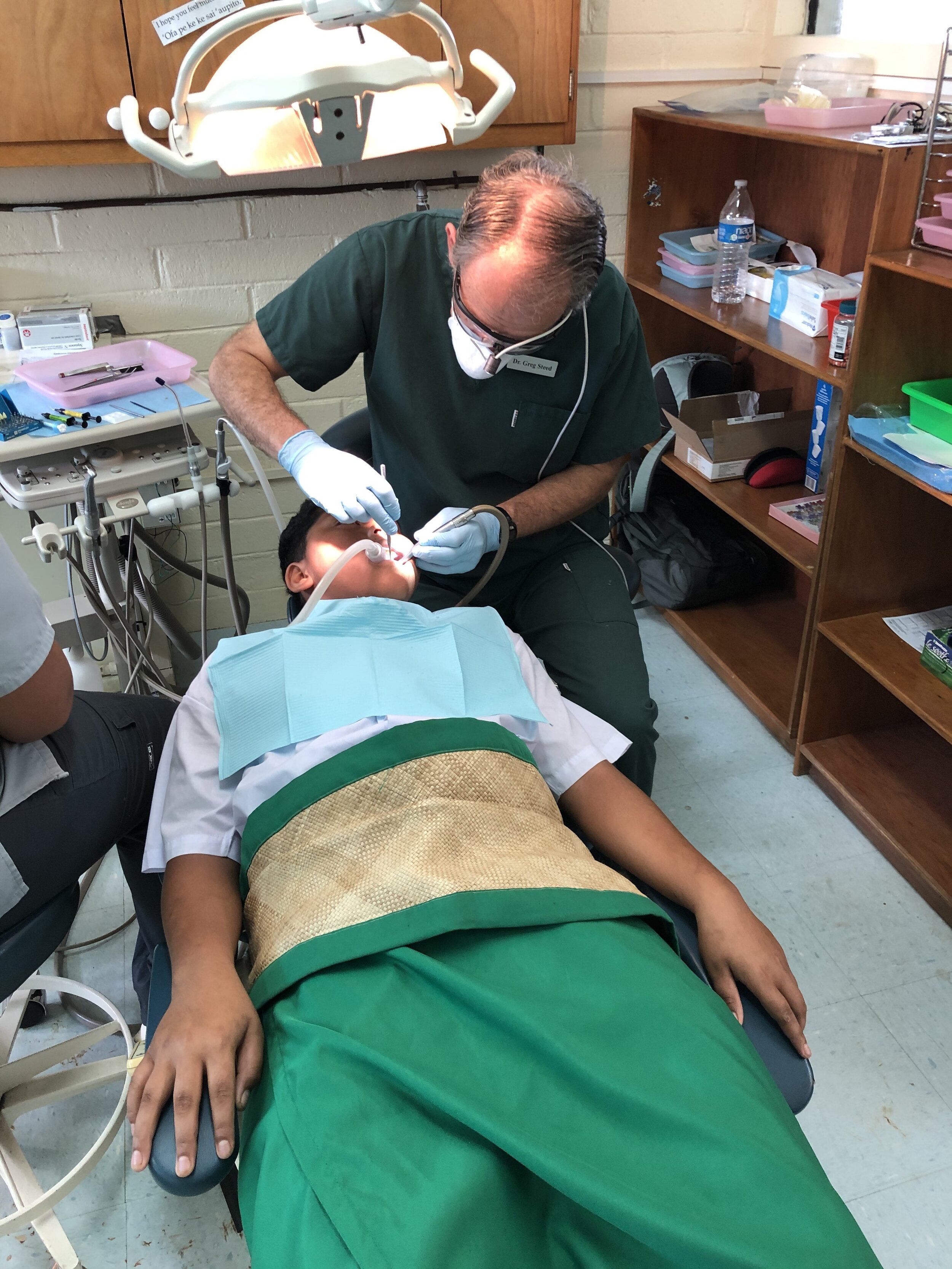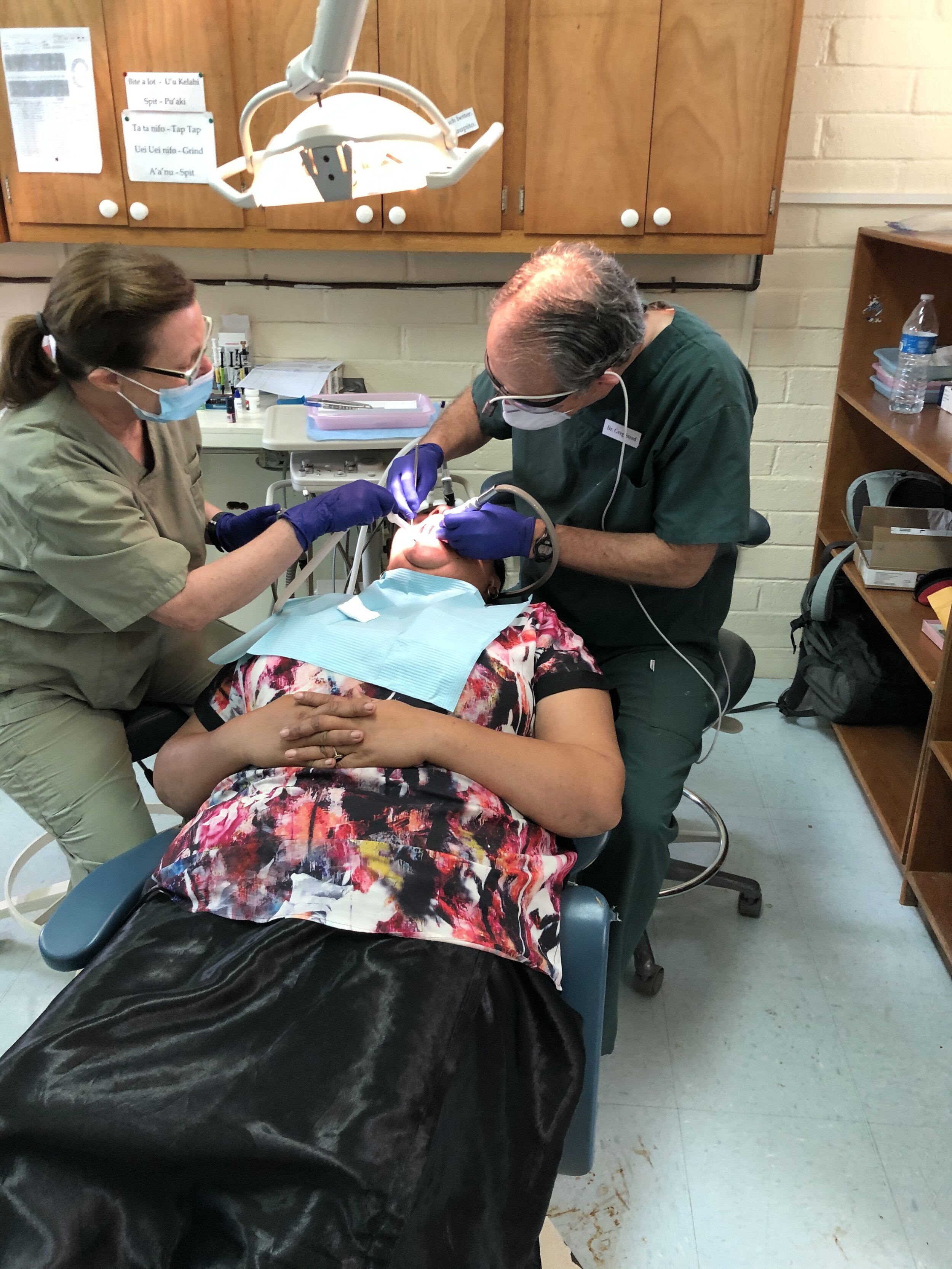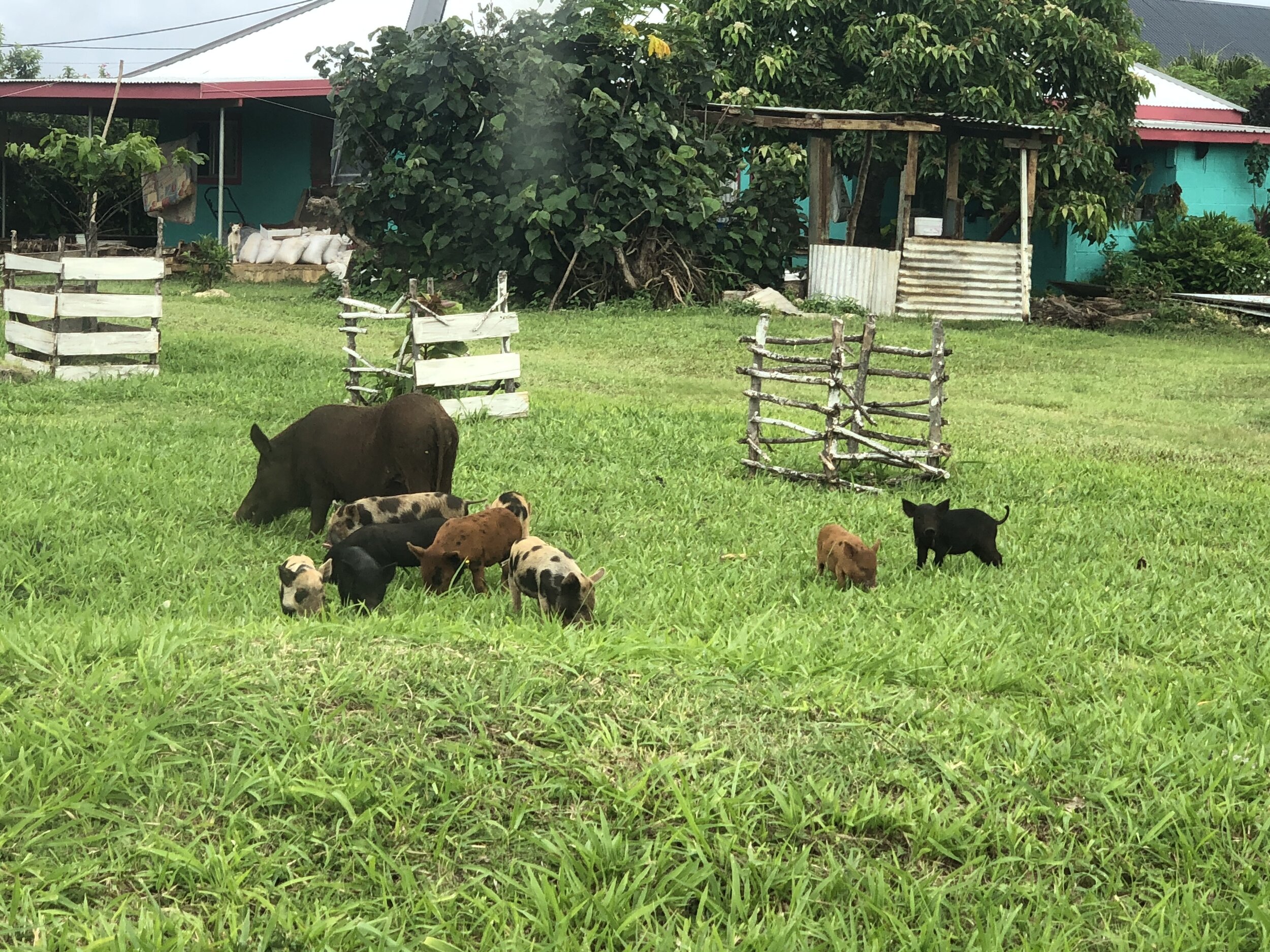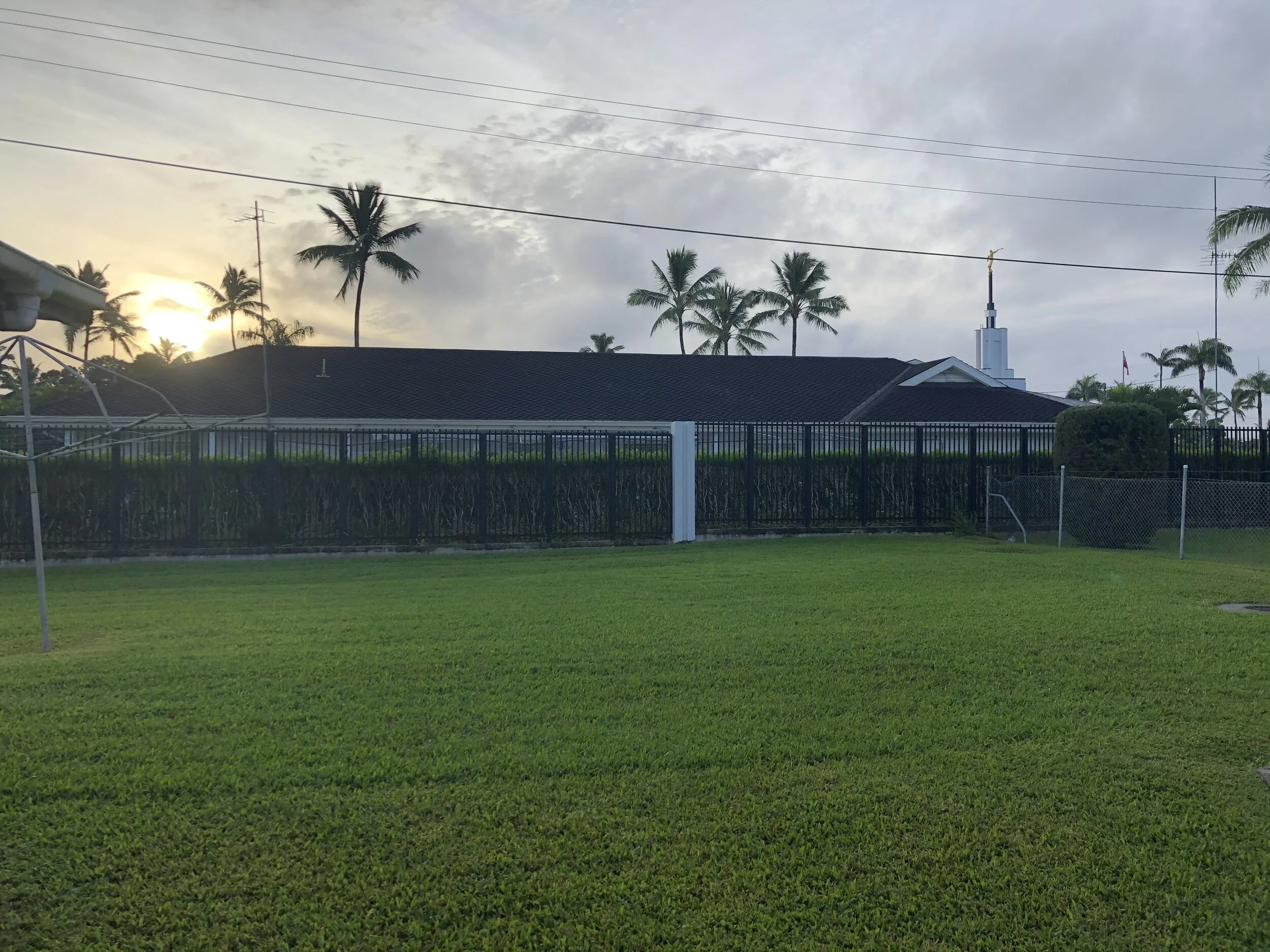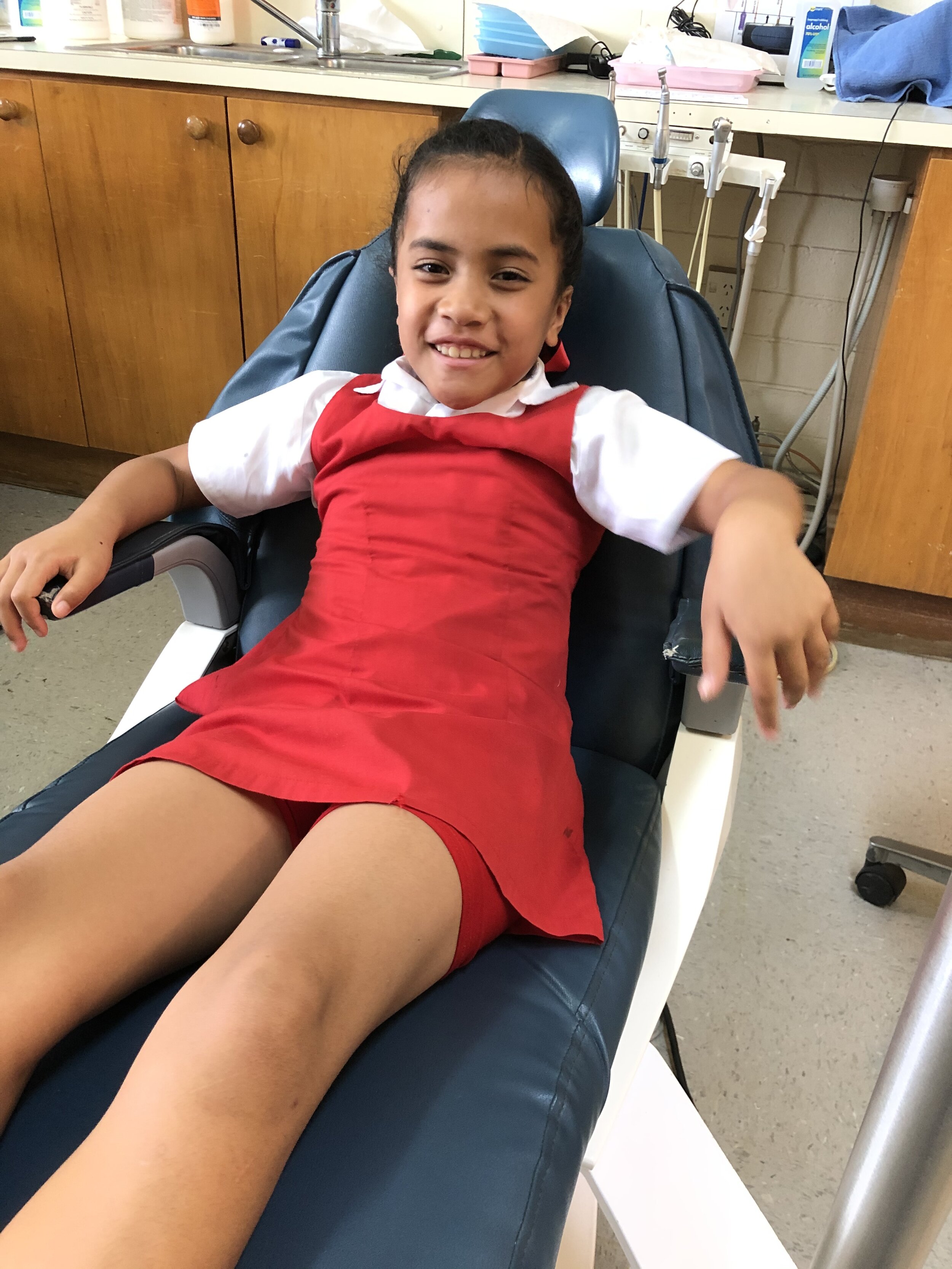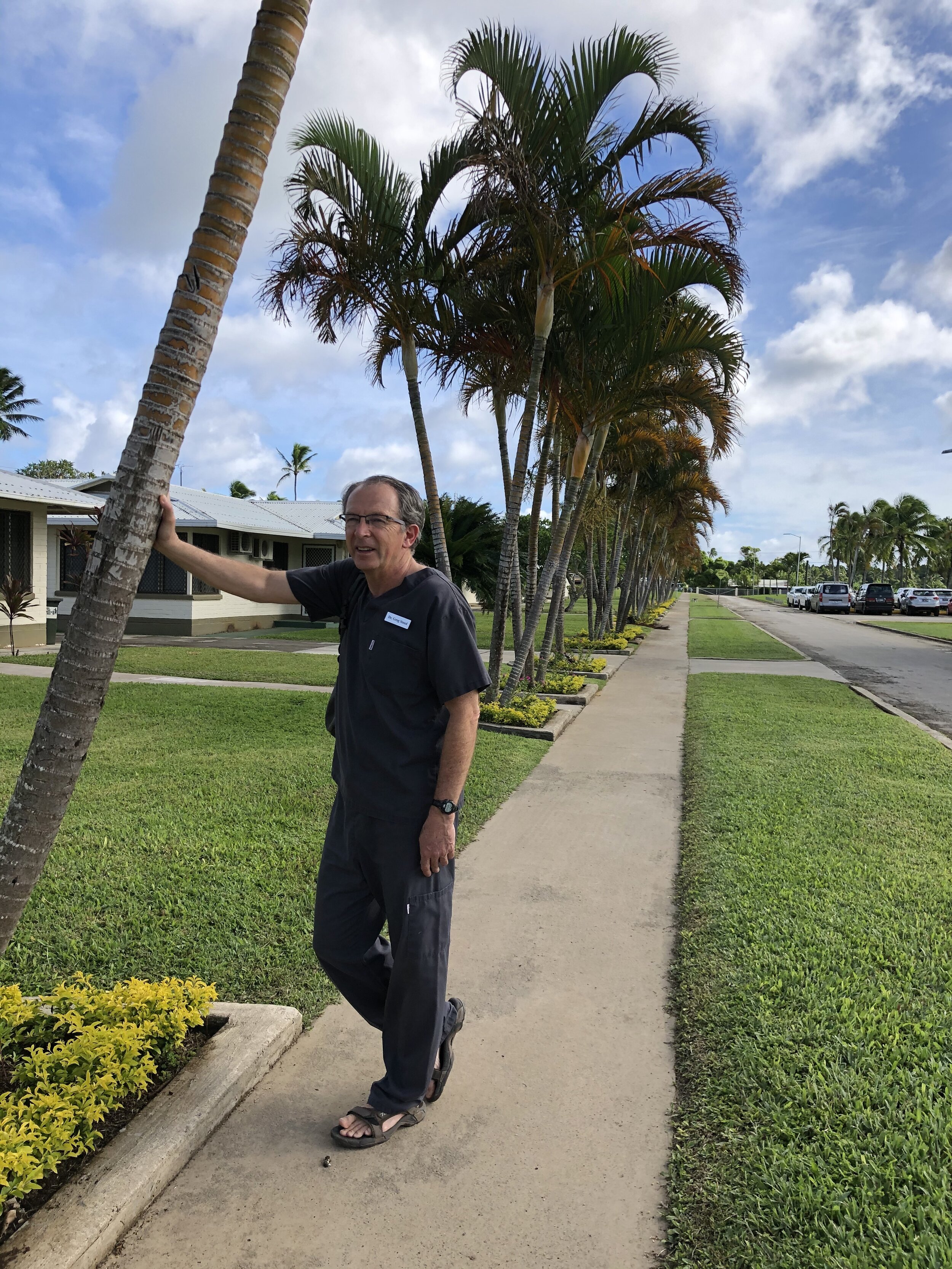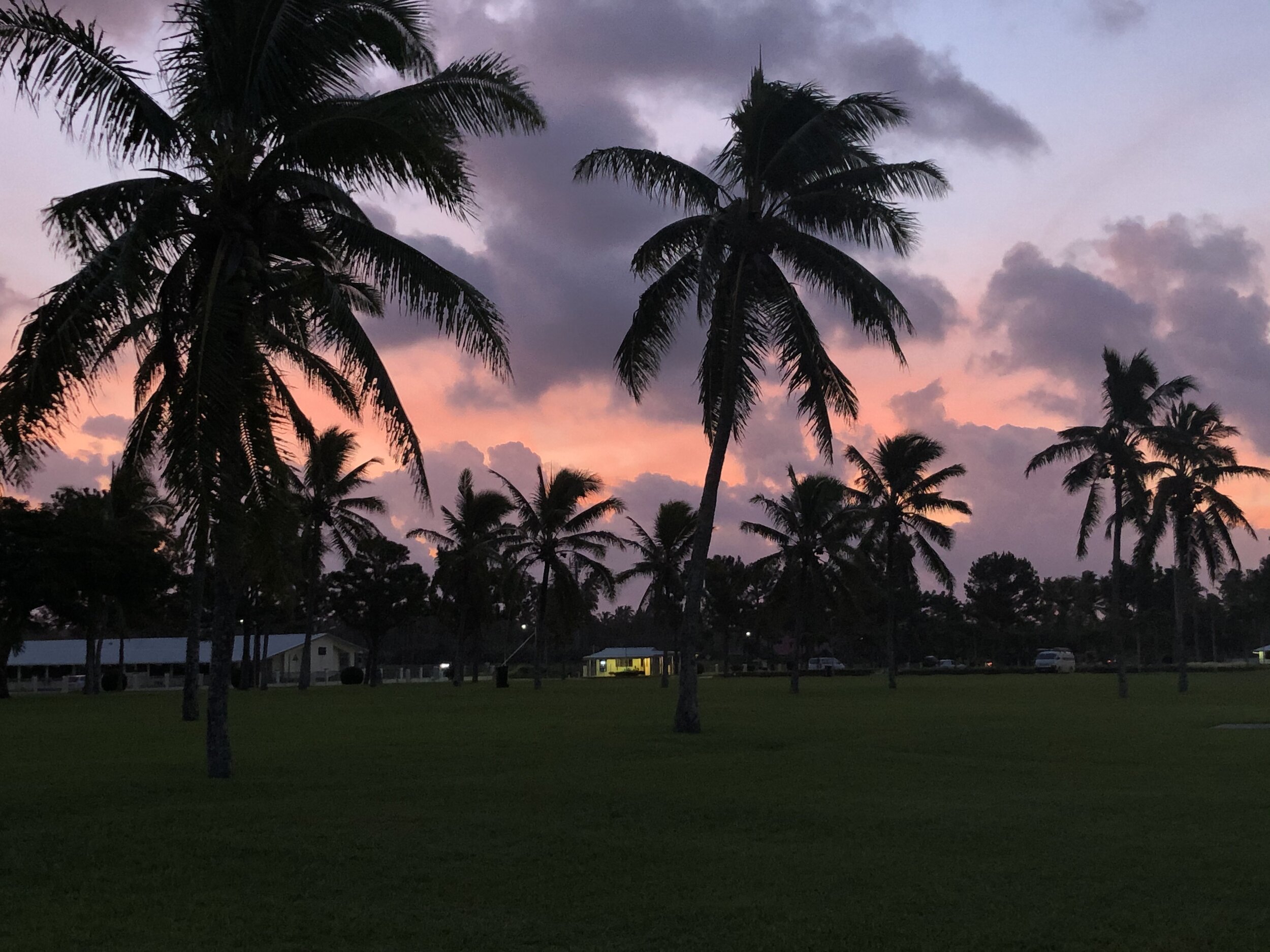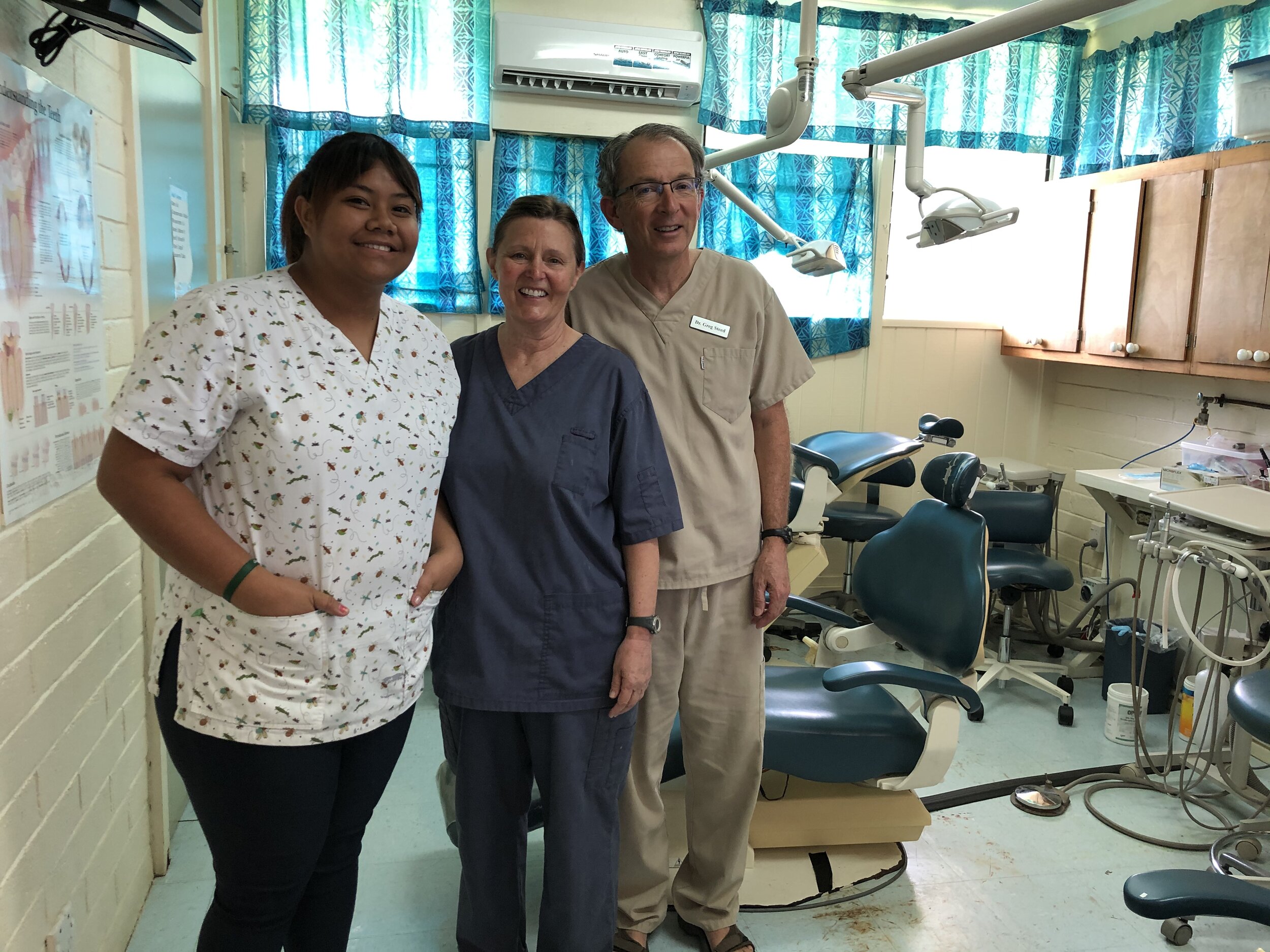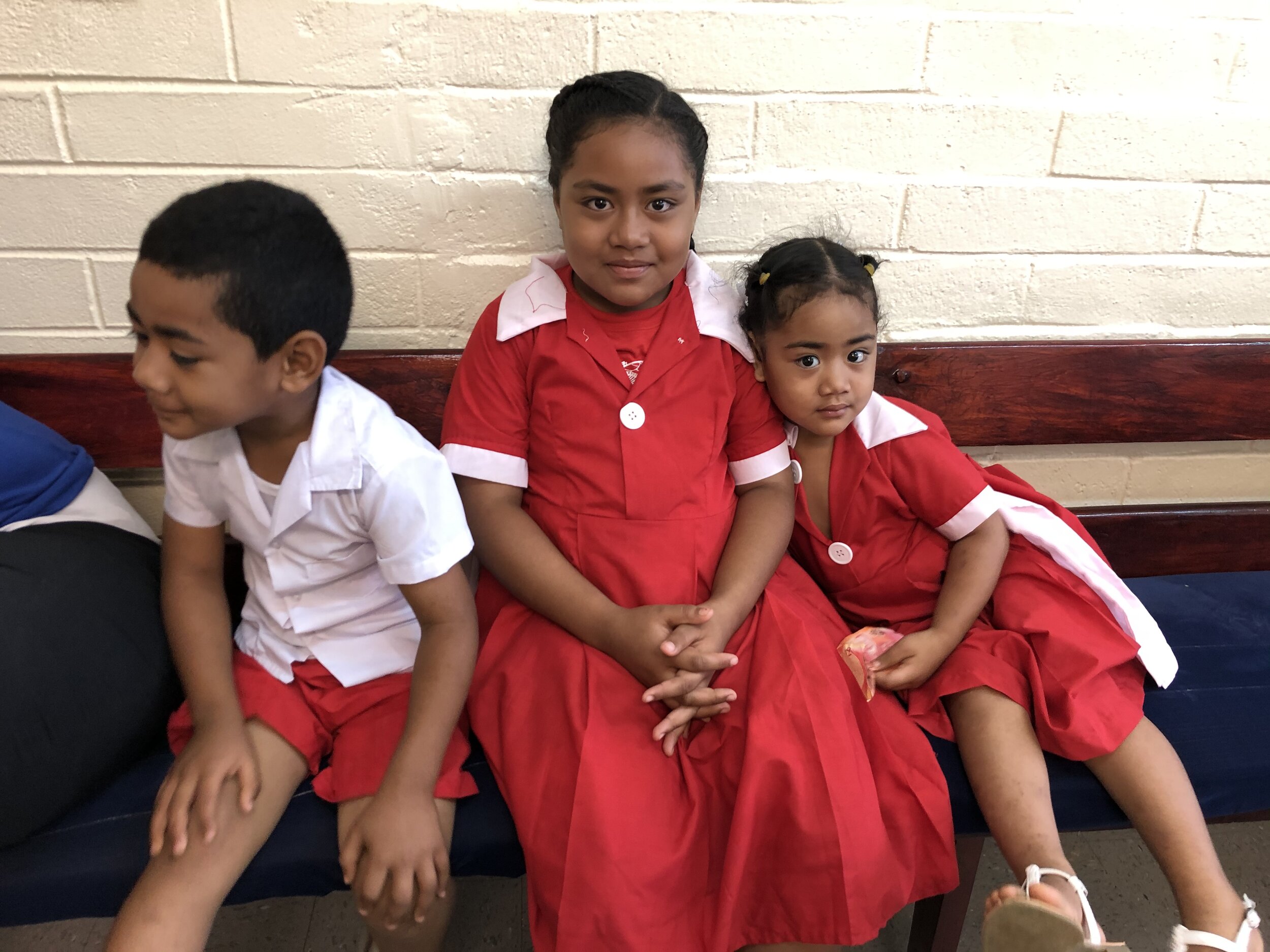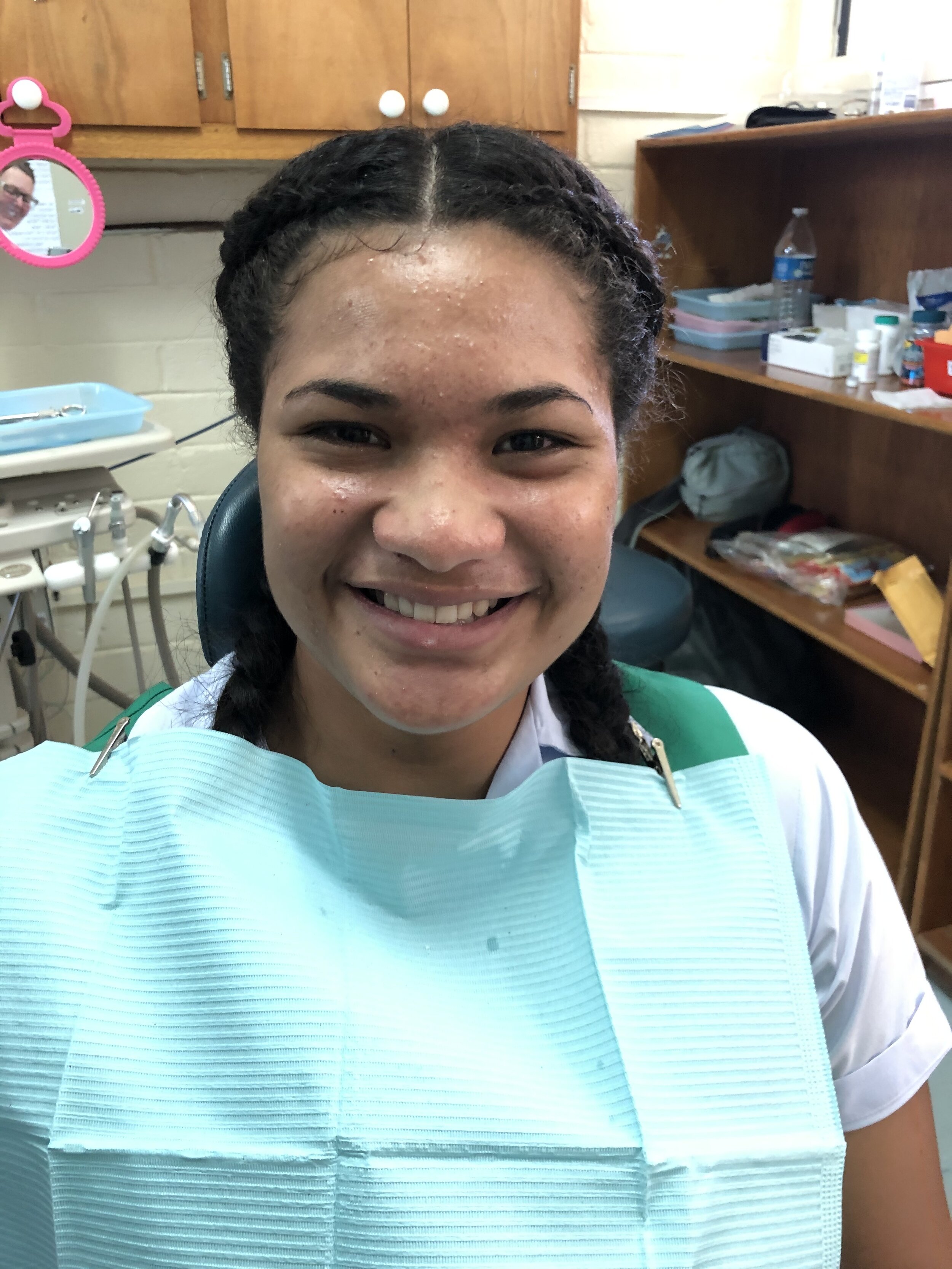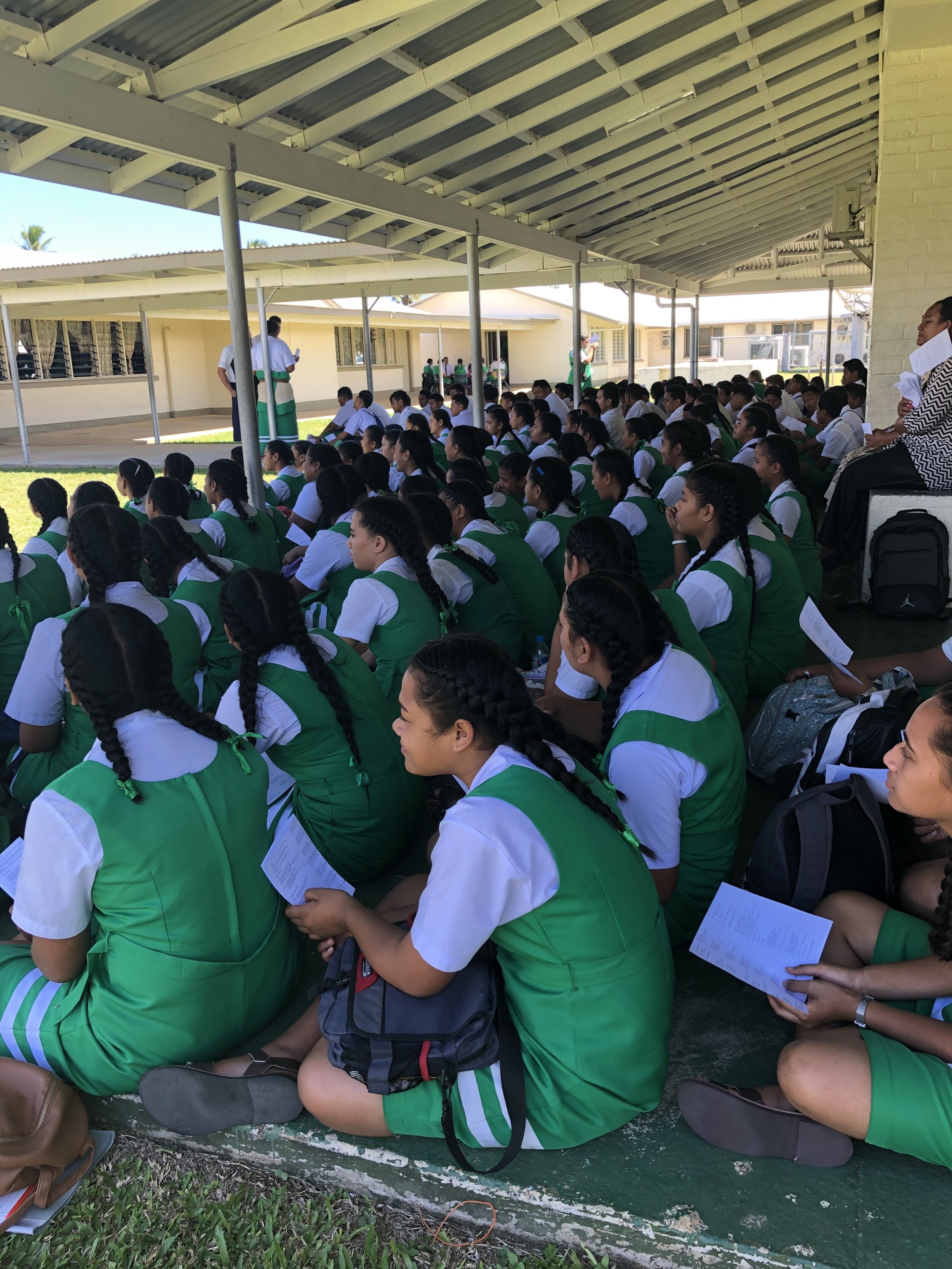I and my wife Cheralyn, recently completed a humanitarian dental mission to the small Pacific island nation of Tonga. We left on January 30 and returned on February 26. Tonga is made up of several small islands in the south pacific and has a total population of only about 105,000. The main island of Tongatapu is where the capital of Nukualofa is located, and most people live on this island. Tourism is not very well developed on the island, with no resorts there like on Hawaii. Interestingly, the island is a monarchy, and it was never a colony to any other country. The majority of people on the island live in relative poverty. A substantial number of Tongans live on subsistence agriculture and what they can get from the sea. They have a high incidence of diabetes and heart disease, with a low life expectancy in the low to mid 60s. Because of the diet and the economy, dental problems are very common, and routinely go untreated. I worked in a permanent community dental clinic located at a school in the middle of the island. Dentists and dental students from North America staff the clinic throughout the year on a totally volunteer basis. All the treatment is provided for free and is open to any residents on the island. The treatment is comprised mostly of restorations (fillings) and extractions. I did some root canals on younger patients to help them save important front teeth. I and another dentist from Calgary were at the clinic while I was there. The patients would line up in the morning (up to 20) well before we would arrive, and they would wait until we could see them. Besides the Tongan language, English is taught in the schools, so we could talk to many of the patients, although we had local volunteers to help us with communication. The people there are very friendly and appreciative of our efforts. There are a few local dentists on the island, but they are overwhelmed by the treatment need, so are appreciative of the community clinic. They were trained in Fiji, and so we visited some local dentists one night a week to talk to them about dental treatment techniques and materials. Although the clinic has a humanitarian foundation which helps sponsor in part, visiting dentists are encouraged to bring their own supplies. I was helped in this by the two main dental supply companies in Alberta which work with our clinic in Pincher Creek and other community support. Also greatly appreciated was the generous donation of antibiotics and painkillers by Pincher Creek Pharmasave for me to take to Tonga to use for my patients and leave for continued use by the dental volunteers who follow. Fortunately, there were no Corona virus cases in Tonga while we were there, and there were still no cases there as of the end of March. The majority of the patients I saw had a painful condition. Some had been putting up with several teeth causing pain for lengthy periods of time. The days were busy with so many people waiting and with so much need, but it was a rewarding experience to be able to help. In turn, we experienced a unique place and culture, where the people were very gracious. When Captain James Cook first visited Tonga 250 years ago his reception was such that he named the islands, the Friendly Islands. This has not changed, and we feel so fortunate to have had the experience.
